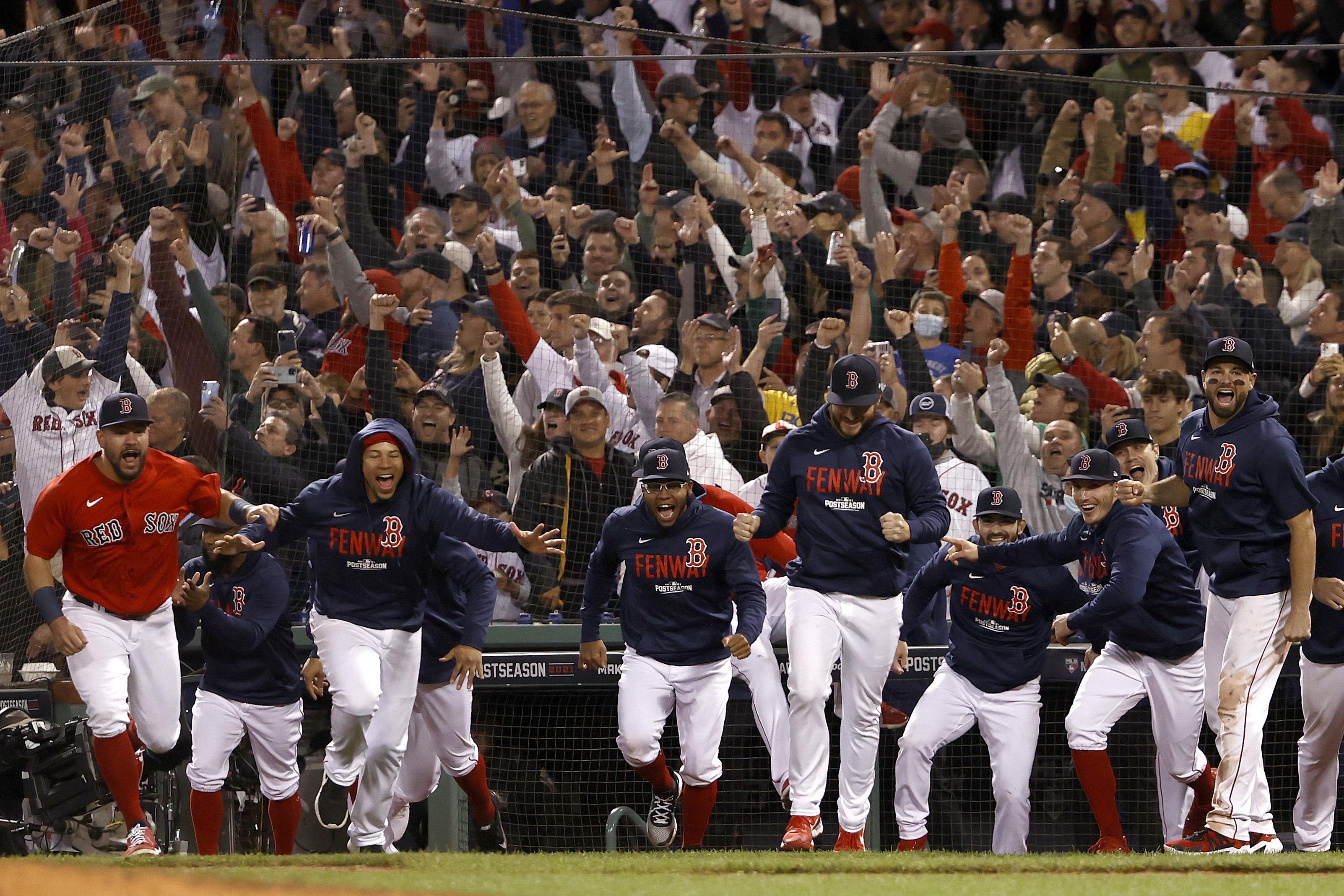That was not exactly as advertised.
Tuesday night’s wild card game was a highly anticipated sudden-death matchup between the Yankees and Red Sox—or as Major League Baseball likes to call them, “the Rivalry.” Had the teams delivered another one of the thrilling, back-and-forth contests they played in Fenway the weekend before last, this nationally televised spectacle would have been the perfect antidote to a difficult pandemic baseball season plagued by flagging attendance, a looming labor dispute, and existential questions about a slow, dull style of play characterized by frequent pitching changes and record numbers of strikeouts.
If you went to bed early, you might have felt you’d gotten that antidote. The Yankees’ $324 million man Gerrit Cole matched the shortest start of his career, but the best of the New York bullpen kept it close. Boston’s Nathan Eovaldi was sharp, but the Yankees rallied in the sixth to chase him. It was the Yankees and Red Sox in a win-or-go-home playoff game, Fenway roaring at every Yankee strikeout and chanting a sing-song “Geeeeeeeerrit” at the visitors’ struggling ace. Even if the wild card game failed to deliver a thrilling contest, it would’ve been hard for a Yankees fan to feel shortchanged by the result.
Alas, after the tense start came a plodding and lopsided finish—6–2 Red Sox, though it didn’t feel that close—that in some ways offered the worst of baseball in 2021. For Yankees fans, that’s a very familiar thing.
The teams combined for 20 strikeouts. Yankees pitching served up seven walks, and the team used three mound visits (with one pitching change) to handle six Red Sox hitters in a seventh inning that felt both decisive and soporific. Yankees fans endured 10 fruitless at-bats by Rougned Odor (.204), Kyle Higashioka (.181), and Joey Gallo (.160), plus a swing by Gary Sanchez (.204). Batting average may not mean much to analytically minded experts, but it’s still a valuable heuristic for how fun a team is to watch—the likelihood that a ball will drop between the fielders and lead to action on the bases. Despite winning 92 games, the Yankees had a batting average among the league’s bottom 10.
Going into Tuesday’s game, it was hard not to reminiscence about Oct. 2, 1978, when the Yankees flew to Fenway for a one-game playoff and beat the Sox on a come-from-behind, three-run home run by a scrawny shortstop named Bucky Dent. (This connection was not lost on Dent, who was in the stands at Fenway on Tuesday with a Yankees cap.)
That game become a beloved fixture of Yankees lore: the hinge between a furious September run to catch the foundering Sox and a second consecutive World Series title. In Boston, the memory lingered as a particularly cursed episode of the 86-year curse.
A one-game tiebreaker was a rare occurrence in those days, when each league had two divisions and just one playoff series before the Fall Classic.
MLB’s single-elimination wild card format was a conscious effort to re-create the magic of the Bucky Dent game and Bobby Thomson’s “Shot Heard ’Round the World”—to stage classic, win-or-go-home games every year rather than once a decade.
There can be too much of a good thing. The sudden-death wild card is as disconnected from the rhythms of the long baseball season—where even the best teams lose one in three—as a penalty shootout is from a soccer match. The situation is also particularly unfair when one team had a much better season than the other. That’s the case with Wednesday night’s game between the Dodgers and Cardinals. L.A. won 106 games—finishing 16 games ahead of St. Louis. The Dodgers get home-field advantage for their trouble.
That particular concern could be waved away for Tuesday’s game, whose divisional rivals had already played 19 games this year and finished with identical records, eight games behind the Tampa Bay Rays in the AL East. (The Red Sox won the season series with the Yankees 10–9, earning them home field on Tuesday.) No teams ever deserved a sudden-death matchup more.
The wild card’s imposition of scarcity into a sport characterized by abundance isn’t all bad. As I wrote in a 2017 defense of the format, these play-ins spotlight the baseball minutiae that always enthrall hardcore fans but sometimes bore casual observers. Home-field advantage meant two rockets off the bat of Giancarlo Stanton—homers in many MLB ballparks—went for mere singles. A reckless call by the Yankees’ third-base coach, after a league-leading 22 outs at the plate this year, felt like the difference between playing October baseball and watching it on TV. The high stakes drove Fenway into a frenzy over a game that wouldn’t have drawn much talk in May or June.
But distilling the essence of baseball into nine innings is a risky bet, and a decade of wild card games shows they’re not any closer or more exciting than the average. On Tuesday night, it didn’t pay off for fans or for the sport itself. What might have been an enticing curtain-raiser on a dramatic playoff series was a middling end to a long season. It wasn’t unfair, but it wasn’t thrilling, either.
